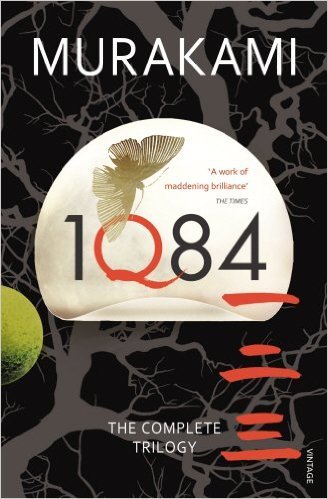Haruki Murakami and the Midnight Disease
Haruki Murakami is one of those writers who can be best described as an odd auld creature. A perennial contender for the Nobel Prize for Literature, it is hard to figure out why he has not yet been a winner – in lieu of the likes of recent and questionable recipients Mo Yan or Patrick Modigliani. Perhaps it’s the fact his books are too popular or entertaining; maybe his dulcet, unexaggerated tone is too conversational, or it might even be that the recurrence of themes – cats, moons, old Japanese history and Greek philosophy consistently thrown amongst the esoteric symbols he employs – come around so often that you can’t help smiling at their familiarity.
He began his life as a writer in his late twenties. The oft repeated story of his Rosy Crucifixion relates how he was watching the arc of a baseball while at a match between Yakult Swallows and Hiroshima Carp in Shinjuki, Tokyo when he realised, from nowhere, that he could write; why shouldn’t he write? So he went home to his Jazz bar and began his first novella – Hear the Wind Sing – which long languished out of print, but has just recently been translated into English by Ted Goossen and has received what some feel is a long overdue republication alongside his other out-of-print outing, Pinball 1973, in a two-novella publication.
Murakami is adored the world over for his expositions on loneliness, adolescence, absent-minded parents, awkward romances and the brilliance of underappreciated oeuvres like Classical Music and Jazz. [pullquote]He’s a writer cut in the old mode, devoted to the ideal of eventual peace but also inundated by the oddities that occur whilst living in this crazy world of postmodern symbolism. [/pullquote] Reading his books remind me of that old curmudgeon Grady Tripp from Michael Chabon’s The Wonder Boys. Tripp suffers from an ailment he likes to call the Midnight Disease, which affects writers, artists and just about anyone who can’t stop their minds wandering in the AM. At one point he describes the symptoms by saying “After a while you lost the ability to distinguish between your fictional and actual worlds.” If that isn’t a summary statement on Murakami’s bibliography, then I don’t know what is.

The first of his books that I read was 1Q84. For the most part of the 1,000 page expanse I was enthralled by the way Murakami bent the worlds of his characters to fit the metaphysics of the book. At a loping pace he walks the reader through the thoughts of Aomame, Fuka Eri and Tengo, who are in the midst of a fatalistic triangle of circumstances without quite knowing it. He cuts from place to place at pace, and even if you’re not interested in his thoughts on modernisation and the casualties of the Second World War, there’s enough going on to keep you interested. However, at the climax of the novel, I got the distinct impression that the whole story deflated like a worn out balloon. I didn’t understand the romance of his peaceful ideal; I just wanted the action to keep on going.
Afterwards, I wasn’t very eager to go searching for any of his other stuff. My younger brother read 1Q84 in a moment of boredom. He, unlike me, got the point of it straight off, and ended up working his way through Kafka on the Shore and Norwegian Wood, amongst others. Months later, I found myself wanting to read something nice and relaxing, when my brain was running away with itself and I instantly thought of Murakami. I pulled out Kafka on the Shore and again found myself pleasantly surprised. At first averse to the chapters written from Nakata’s point of view, I grew to love the way he could talk so easily with pussycats, because of his gentleness and his innate knowledge that the majesty of our feline friends could only be gauged with the right words, the correct approach. There’s something to that, isn’t there?
Then, after that, the next logical step was Sputnik Sweetheart. I’m a big fan of Jack Kerouac, so the description of the protagonist as ‘an aspiring writer who dresses in an oversized second-hand coat and heavy boots like a character in a Kerouac novel’ was enough to get me interested. What I found was certainly not what I expected. Sumire is awkward in her literary pretensions, angry that no-one treats her the way she thinks she deserves to be treated; she is someone who aspires to the aloof attitude of Kerouac and his friends, but is ultimately weighed down by the representative jacket she wears as a badge of honour.
In almost every one of his books, Murakami appeals to the wilfully different, the obstinately alienated who are trying to reach towards the ideals they have erected in the solitude of their imagination. Beneath his idiosyncratic, slow and meaningful pace is a world full of experience, so shrewd as to be close to invisible. Once you find the hidden meanings, though, like the muted trumpet in The Crying of Lot 49, it continues to recur and shock and welcome you. He shows you what you have been, what you are, and the silliness of what you think you should be.
Featured images via:
culturebox.francetvinfo.fr
amazon.co.uk

